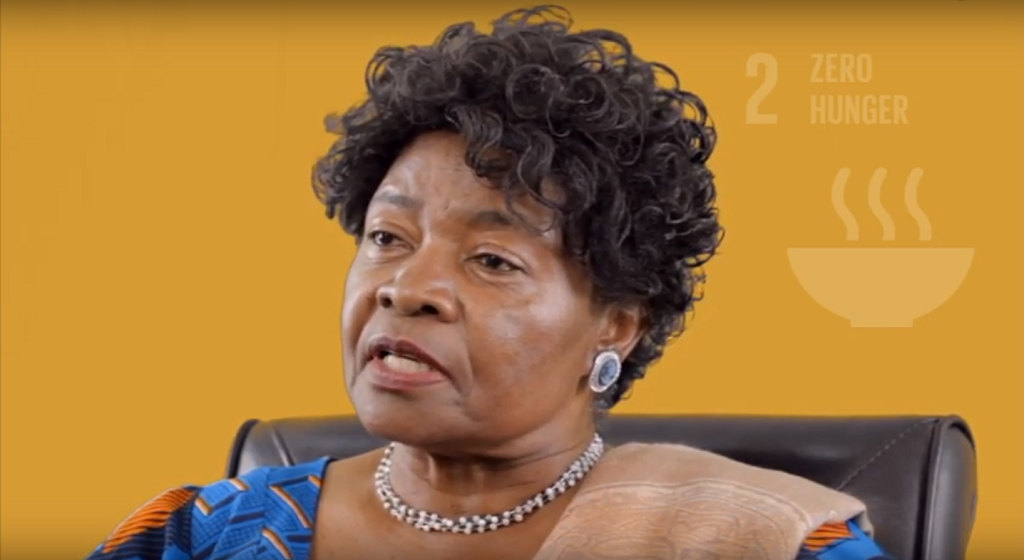Irrigation facilities to enhance all year seed supply by farmers in central Uganda
Lack of access to quality seed, particularly of traditional crops that are not well integrated into the formal sector, remains a key challenge for increased productivity of these crops in African farming systems. CABI, working with national and regional partners, aims to strengthen seed systems in Africa through developing farmer seed enterprises and linkages to…
Stuffed and starved: is sufficiency the new efficiency?
Attending a recent Chatham House event, one statistic seemed to encapsulate the crisis of our current food system: 795 million eat too little while 2 billion eat too much. After the initial shock of hearing this, I couldn’t help but wonder; if there’s plenty of food to go around why are we simultaneously starving and…
Capitalising on Africa’s agriculture to achieve ‘zero hunger’
CABI board member Professor Ruth Oniang'o talks about winning the 2017 Africa Food Prize and how CABI is working towards helping to achieve the UN Sustainable Development Goal 2: Zero Hunger.
Building a climate-smart value chain: The role of research, development and technology
This is the second of a two-part blog series following my visit to Africa supported by CABI’s development bursary The first blog in this series described the Africa Cassava Agronomy Initiative (ACAI) and how it aims to improve cassava agronomy to increase production and productivity, as well as how ACAI partnerships could build a climate-smart…
Omega oils 3, 6, 7 and 9 – what’s the difference?
Many people are not sure how omega oils feature in their diet and in what quantities they should be consuming them. Considering that many of are not getting even the minimum levels in our diet that are deemed “critical” to health by the World Health Organization (WHO), maybe we should rethink our 'laissez faire' attitude.
CABI’s Good Seed Initiative contributes to seed policy dialogue and review in Tanzania
Photo: Agricultural extension worker of Arumeru district interacting with a seed grower contracted by Alpha seed company in Arusha. Photo credit: Kansiime, CABI CABI’s Good Seed Initiative (GSI) aims to improve the seed systems of small-scale farmers in sub-Saharan Africa and South Asia. A GSI project funded by Irish Aid has been implemented in Tanzania…
Access to market key to adopting improved legume technologies
Some of the farmers that participated in the a meeting with CABI/AFAP team in December 2016 in Chalangwa village, Chunya district, Mbeya region. Second from left is the District Agricultural Officer Mr. Augustine Ndelwa. Photo: Abigael Mchana, CABI By Monica Kansiime, Seed systems scientist, CABI In the southern highlands of Tanzania, people’s livelihoods are dependent…
Universal health coverage gains momentum in 2016
Universal Health Coverage (UHC) day, December 12th, focusses on achieving Health for All by expanding UHC, a key SDG, to low and middle-income countries and ensuring that it also reaches the poorest in wealthy countries. Everyone should have access to basic health services without suffering financial hardship. The G7 Ise-shima meeting linked it to achieving better health systems and the global health security agenda. WE discuss what LMIC provide as basic health services and what NGOs and the public health community would like to further include (neglected tropical diseases and provision for refugees and migrant workers in host countries).




